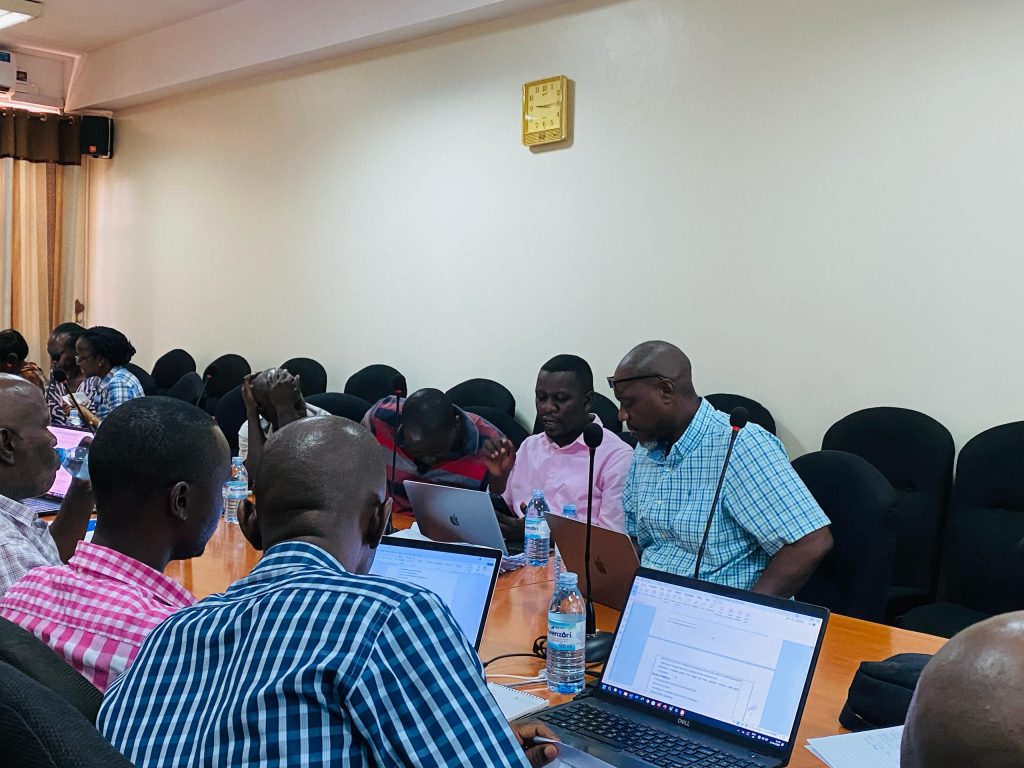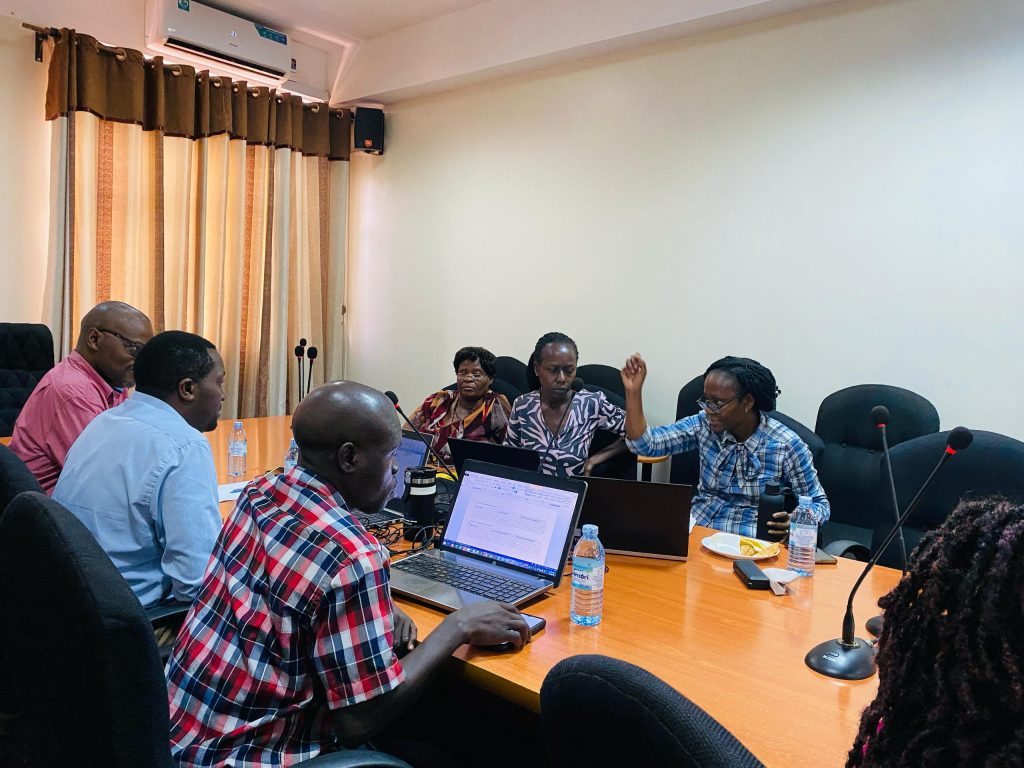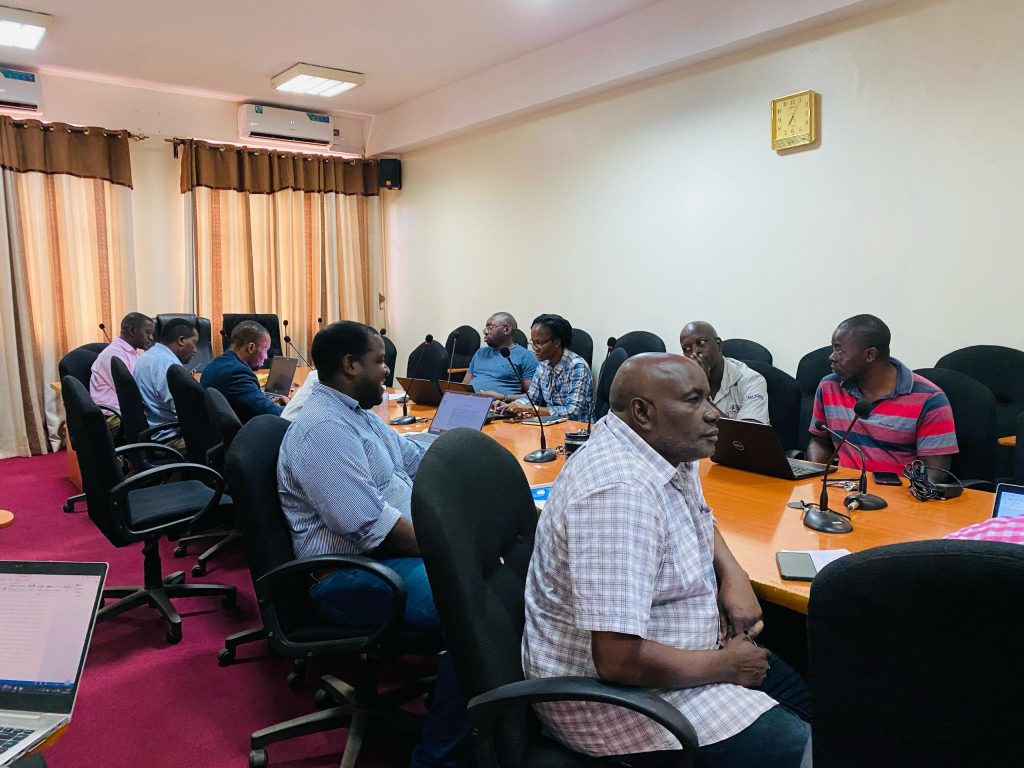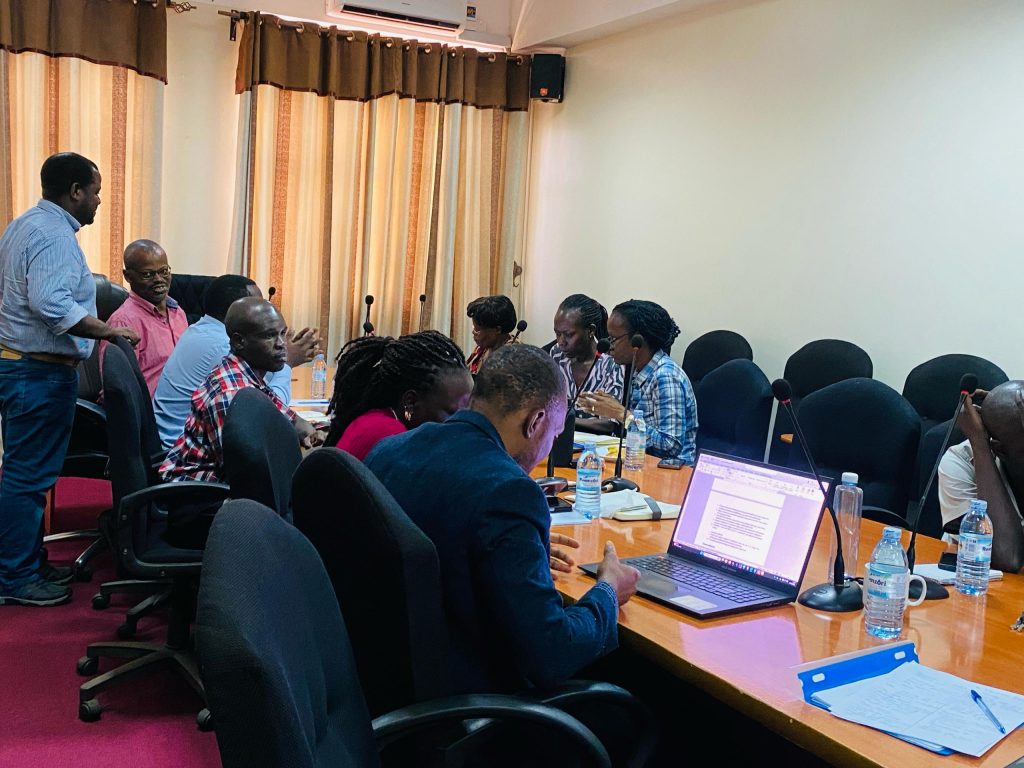On Thursday, April 17, 2025, the Departments of Civil & Environmental Engineering and Mechanical Engineering at Makerere University held a joint training workshop on Competence-Based Education (CBE). The workshop, facilitated by Dr. Tebenkana Timothy from the College of Education and External Studies (CEES), aimed to enhance the capacity of academic and technical staff to redesign engineering course units in line with the CBE framework, in response to national curriculum reform efforts led by the Uganda National Council for Higher Education (NCHE).

The training introduced participants to the core philosophy and principles of CBE, emphasizing learner-centered education, real-world application of skills, and performance-based assessment. Through interactive sessions and group work, participants explored how CBE differs from traditional education models and were guided on designing SMART learning outcomes, deriving aligned learning activities, and selecting appropriate assessment strategies.
A key feature of the workshop was the hands-on course redesign activity, where participants reviewed existing course units and reformulated them to reflect CBE principles. This included defining clear competencies, crafting measurable outcomes, and proposing learner-centered instructional approaches.

The workshop was attended by 26 participants, including lecturers, assistant lecturers, professors, and technicians, with 11 from Civil & Environmental Engineering and 15 from Mechanical Engineering. The event fostered collaboration, peer learning, and a commitment to curriculum transformation.
The workshop concluded with clear recommendations for sustaining the momentum and ensuring effective institutional adoption of CBE. These include the need for follow-up training, the formation of departmental curriculum review teams, mentorship and peer support, institutional backing, and monitoring and documentation of the implementation process.

This workshop represents a critical step towards aligning engineering education at Makerere University with the needs of industry and society, promoting competence, adaptability, and lifelong learning among graduates.

